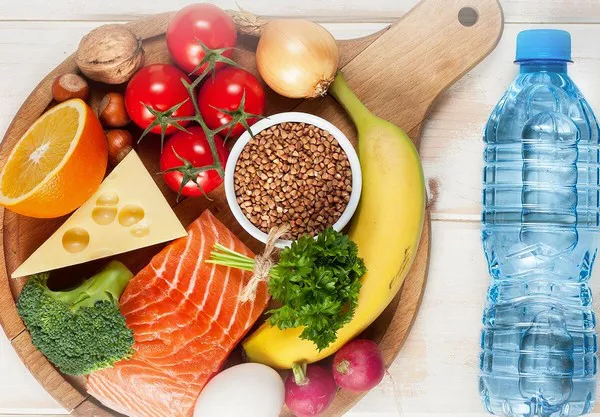Protein is an essential macronutrient that plays a crucial role in our overall health and well-being. It is often referred to as the building block of life, as it is involved in various physiological processes, including muscle growth and repair, enzyme production, hormone synthesis, and immune function. In this comprehensive article, we will explore the concept of protein food, its significance in the diet, and the numerous benefits associated with consuming protein-rich foods. Understanding the importance of protein and incorporating protein-rich foods into our diet is essential for maintaining optimal health and supporting various bodily functions.
1. What is Protein?
Protein is one of the three macronutrients, alongside carbohydrates and fats, that our bodies require in relatively large amounts. It is composed of amino acids, which are organic compounds that serve as the building blocks of proteins. There are 20 different amino acids that can be combined in various ways to form different proteins in the body. Protein is found in every cell and tissue and is involved in numerous physiological processes.
a. Structure and Function: Proteins have a complex three-dimensional structure that determines their function. They can be structural, such as collagen in connective tissues, or functional, such as enzymes that catalyze chemical reactions in the body. Proteins also play a vital role in cell signaling, transport of molecules, and immune response.
b. Complete vs. Incomplete Proteins: Proteins are classified as complete or incomplete based on their amino acid composition. Complete proteins contain all the essential amino acids that the body cannot produce on its own, while incomplete proteins lack one or more essential amino acids. Animal-based protein sources, such as meat, fish, eggs, and dairy products, are typically complete proteins, while plant-based protein sources, such as legumes, grains, nuts, and seeds, are often incomplete proteins. However, by combining different plant-based protein sources, individuals can obtain all the essential amino acids necessary for optimal health.
2. The Importance of Protein in the Diet
Protein plays a vital role in maintaining overall health and well-being. It is involved in numerous physiological processes and has several important functions in the body. Here are some key reasons why protein is important in the diet:
a. Muscle Growth and Repair: Protein is essential for muscle growth and repair. During physical activity and exercise, muscle fibers undergo microscopic damage. Protein provides the necessary amino acids to repair and rebuild these damaged muscle fibers, leading to muscle growth and strength development. This is why protein is often associated with athletes and individuals engaged in regular exercise.
b. Satiety and Weight Management: Protein-rich foods are known to promote feelings of fullness and satiety. Including protein in meals and snacks can help control hunger, reduce cravings, and prevent overeating. Protein takes longer to digest compared to carbohydrates, which can help regulate blood sugar levels and provide sustained energy throughout the day. As a result, protein-rich foods can be beneficial for weight management and maintaining a healthy body composition.
c. Metabolism and Energy Production: Protein plays a role in metabolism and energy production. The body requires energy to break down and process dietary protein, a process known as the thermic effect of food (TEF). TEF refers to the increase in energy expenditure that occurs after consuming a meal. Protein has a higher TEF compared to carbohydrates and fats, meaning that it requires more energy to digest, absorb, and utilize. This can have a positive impact on overall calorie expenditure and metabolic rate.
d. Enzyme Production and Hormone Synthesis: Proteins are involved in the production of enzymes, which are molecules that facilitate biochemical reactions in the body. Enzymes are essential for digestion, nutrient absorption, and metabolism. Additionally, certain protein hormones, such as insulin and growth hormone, play critical roles in regulating various physiological processes, including blood sugar control, growth, and development.
e. Immune Function and Wound Healing: Protein is vital for a healthy immune system and efficient wound healing. Antibodies, which are proteins produced by the immune system, help defend the body against harmful pathogens and promote immune responses. Protein is also involved in the production of cytokines, which are signaling molecules that regulate immune function. Adequate protein intake is necessary to support optimal immune function and promote proper wound healing.
3. Protein Food Sources
Protein can be obtained from a wide variety of food sources, both animal-based and plant-based. Including a variety of protein-rich foods in the diet ensures an adequate intake of essential amino acids and provides a diverse range of nutrients. Here are some examples of protein food sources:
a. Animal-Based Protein Sources: Animal-based protein sources are known for their high biological value, meaning they contain all the essential amino acids in the right proportions. Examples of animal-based protein sources include lean meats (such as chicken, turkey, and beef), fish and seafood (such as salmon, tuna, and shrimp), eggs, milkand dairy products (such as yogurt and cheese). These protein sources are not only rich in protein but also provide essential nutrients like vitamin B12, iron, and omega-3 fatty acids.
b. Plant-Based Protein Sources: Plant-based protein sources are excellent options for individuals following vegetarian or vegan diets, or those looking to incorporate more plant-based foods into their meals. While plant-based proteins are often incomplete, combining different sources can create a complete amino acid profile. Legumes (such as beans, lentils, and chickpeas), tofu and tempeh, quinoa, nuts and seeds, and whole grains (such as brown rice and oats) are all excellent plant-based protein sources. Additionally, certain vegetables like spinach, broccoli, and Brussels sprouts also contain notable amounts of protein.
c. Protein Supplements: In some cases, individuals may struggle to meet their protein needs through whole foods alone. Protein supplements can be a convenient and effective way to increase protein intake. They come in various forms, including protein powders (such as whey, casein, and plant-based options like pea and soy protein), protein bars, and ready-to-drink shakes. It is important to note that while protein supplements can be beneficial, they should not replace a well-balanced diet based on whole foods.
4. Recommended Protein Intake
The recommended protein intake varies depending on factors such as age, sex, activity level, and overall health. The Dietary Reference Intake (DRI) provides general guidelines for protein intake. According to the DRI, the recommended dietary allowance (RDA) for protein is 0.8 grams per kilogram of body weight for adults. However, this recommendation may not be sufficient for certain populations, such as athletes, older adults, and individuals recovering from injuries or illnesses.
For individuals engaged in regular exercise or strength training, higher protein intakes may be necessary to support muscle growth and recovery. The Academy of Nutrition and Dietetics suggests a range of 1.2 to 2.0 grams of protein per kilogram of body weight for athletes, depending on the intensity and duration of training. Older adults may also benefit from higher protein intake to counteract age-related muscle loss.
It is important to consult with a healthcare professional or registered dietitian to determine the appropriate protein intake for individual needs and goals.
5. Protein Food and Health Conditions
Protein-rich foods can have significant health benefits and may be particularly important for individuals with certain health conditions. Here are a few examples:
a. Muscle Loss and Aging: Age-related muscle loss, known as sarcopenia, is a common condition among older adults. Adequate protein intake, combined with regular resistance exercise, can help mitigate muscle loss and maintain muscle mass and strength.
b. Weight Management and Obesity: Protein-rich foods can be beneficial for weight management and obesity prevention. High-protein diets have been shown to increase satiety, reduce calorie intake, and improve body composition by preserving lean muscle mass during weight loss.
c. Diabetes Management: Protein-rich foods have a minimal impact on blood sugar levels compared to carbohydrates. Including protein in meals can help stabilize blood sugar levels and prevent rapid spikes and crashes, making it beneficial for individuals with diabetes.
d. Bone Health: Protein is an essential component of bone tissue. Adequate protein intake, along with sufficient calcium and vitamin D, is necessary for optimal bone health and the prevention of conditions like osteoporosis.
e. Wound Healing and Surgery Recovery: Protein is crucial for wound healing and post-surgical recovery. It plays a critical role in tissue repair and regeneration, making it essential for individuals recovering from injuries or undergoing surgery.
Conclusion
Protein is an essential nutrient that plays a fundamental role in our overall health and well-being. Including protein-rich foods in our diet is essential for supporting muscle growth and repair, promoting satiety and weight management, supporting metabolism and energy production, and maintaining immune function and wound healing. Whether from animal-based or plant-based sources, protein-rich foods offer numerous health benefits and should be a key component of a well-balanced diet. By understanding the importance of protein and making conscious choices to incorporate protein-rich foods into our meals, we can optimize our health and support the proper functioning of our bodies.
[inline_related_posts title=”You Might Be Interested In” title_align=”left” style=”list” number=”6″ align=”none” ids=”3002,2943,2877″ by=”categories” orderby=”rand” order=”DESC” hide_thumb=”no” thumb_right=”no” views=”no” date=”yes” grid_columns=”2″ post_type=”” tax=””]


































